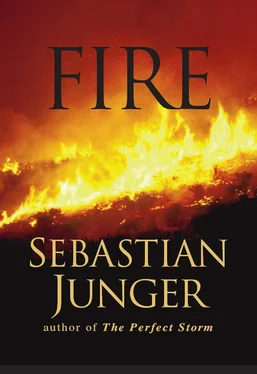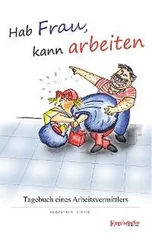The diplomat works in an ultra-high-security office near the Ledra Palace checkpoint. Out his window I can see a huge Turkish Cypriot flag marked out in stones on a distant hillside. Turkish troops supposedly went up there day after day and painted the design on the undersides of the stones. When they were done, they waited until nightfall and then turned all the rocks over. The next morning, the Greek Cypriots awoke to find a huge Turkish Cypriot flag emblazoned across the flanks of the Kyrenia Range.
“Is there a solution?”
“The problem could be solved if you had cooperation between Greece and Turkey,” says the diplomat. “Which is not on the horizon. If you look at Northern Ireland—I don’t like drawing parallels, but this is quite a good one, actually—up until 1984 Britain and Ireland were at loggerheads, and the communities in Northern Ireland exploited this difference to ensure that the conflict just raged on. Then the British and Irish governments agreed to a joint policy on Northern Ireland and stuck to it, firmly. The two communities could not see any light between the policies of the two governments, and in the end they just had to come to terms with each other. If you had that kind of cooperation between the motherlands, the Cyprus problem could be solved pretty easily.”
At the end of the interview the diplomat takes me up to the roof for a look at Nicosia. The sun is setting behind the Troodos Mountains, and we can hear the Muslim call to prayer drifting over from the north side of town. The buffer zone runs like an awkward scar through it all, and beyond it are the massive earthen berms of the Turkish defenses, dug in with tanks and artillery. The diplomat points out the slapdash Greek defenses on our side and then traces the course of the buffer zone as it extends west. “It’s filled with songbirds and wild animals,” he says. “Hunters have killed everything else on the island, and it’s the one place they can’t go.”
Scott Anderson
THE TURKISH REPUBLIC OF NORTHERN CYPRUS
Rauf Denktash, the president of the Turkish Republic of Northern Cyprus, doesn’t much look the part. A short, portly man of seventy-five who bears a striking resemblance to Homer Simpson, he speaks English with just a trace of a British inflection—a result of his legal training in London in the 1940s—and is most often photographed in baggy sweat suits. On this day, sitting in his office in the heavily guarded Presidential Compound in downtown Lefkosa, he wears a business suit. The office is spacious and sunlit, and he shares it with a large aquarium of tropical fish and three very noisy parakeets, in a cage beside his massive desk.
For over four decades Denktash has been the dominant political figure in the Turkish community of Cyprus. One of the chief organizers of the outlawed Turkish Defense Organization back in the 1950s—and twice expelled from Cyprus for his violent militancy—he has been president of the TRNC since its founding. Obviously, such a man knows how to parry journalists, and the evening before our meeting I’d asked a local reporter the best way to handle him.
“Above all, don’t ask him anything historical,” the journalist urged. “As soon as you give him the chance to mention the constitution of 1960, you’re doomed; you’re going to get the Denktash history lesson for the next half hour.”
Well, forewarned is forearmed. Sitting across from the president at the couch and coffee table arrangement in one corner of his office, I ask my first, carefully designed question.
“I’m already quite familiar with the history of Cyprus and because I know you’re a very busy man, I’d like to concentrate on what is happening today, on what you feel is most important for Americans to know about the TRNC and the current situation in Cyprus.”
The president nods. “What I would like Americans to know is that Cyprus has two owners, Greek Cypriots and Turkish Cypriots, and these two owners had agreed to form a partnership republic in 1960.”
As the journalist suggested the previous night, “doomed.” With never a pause, Denktash begins his discourse on the island’s modern history from the Turkish viewpoint: the rise of the EOKA terrorists in the 1950s; the 1960 London Agreement, which the Greeks immediately sabotaged; the terror that existed in the Turkish enclaves throughout the 1960s; how the 1974 Turkish Peace Operation undoubtedly saved them all from EOKA annihilation; the political stasis that has existed ever since.
“And what do you see as the ultimate solution to the Cyprus problem?” I finally manage, because even the most energetic seventy-five-year-old has to pause sometime.
“A bicommunal confederation,” Denktash says. “That’s it. The Greek Cypriots must recognize our legitimacy and our right to govern ourselves. We’ve never made any claim on them—we’ve never called Cyprus a Turkish island, we have always recognized that we share this small island with them—and they must view and treat us the same way. I have said this to the Greek Cypriots many times, and they have always refused to hear it.”
Underlying Denktash’s comments is a deep resentment of the Republic of Cyprus’s ability to keep his domain isolated from the rest of the world. Since Turkey is the only country in the world that officially recognizes the TRNC, it means that international flights do not land there, all diplomatic missions are kept at the “interests section” level, and all incoming mail is routed through a drop box on the Turkish mainland. On the flip side, the isolation gives offshore companies in the TRNC an enormous advantage over companies that have to adhere to international standards and helps fortify Denktash’s state of siege message to his people.
In the Greek Cypriot worldview, Rauf Denktash is either the consummate political opportunist, his power dependent on his ability to keep the island divided, or a puppet of mainland Turkey and its “occupation” forces. In reality, Denktash appears to be enormously popular across the political and social strata of the TRNC. With a repetition that is at first quaint, then becomes tedious, his countrymen have the habit of calling him “the father of our nation” and make frequent comparisons to Kemal Atatürk, the founder of modern Turkey. At times it seems that almost everyone in the country, whether expatriates along the north coast or farmers in the most remote and impoverished mountain village, has had some surprise personal encounter with the president. Usually these involve Denktash, a serious photography hobbyist, tramping through the countryside in his baggy sweat suit with a camera around his neck, his small security detail following at a discreet distance. And although there certainly are those who feel that he is getting too old for the post, his political power hasn’t diminished; in each of the five presidential elections he has stood for, Denktash has emerged triumphant.
Even more remarkable is the degree to which his take on the “Cyprus problem” and how to resolve it is shared by his countrymen. If a visitor to the TRNC is not careful, he or she will be subjected to the “Denktash history lesson” by virtually anyone. Across the political spectrum—and with over a dozen political parties, that spectrum runs from hard socialist to neofascist—nearly all party leaders have adopted Denktash’s talk of a bicommunal confederation, even if they can’t quite articulate what that means. To a degree I’ve not encountered in any other ethnic conflict zone in the world—not in Bosnia or Sri Lanka, certainly not in Israel—the Turkish Cypriots appear to speak as one, and they have chosen Rauf Denktash to do the talking.
This is not to say, however, that the TRNC stands as some monoracial Volksland; rather, it is a place full of quirky little anomalies, reminders of the past that the government has never quite decided whether to tout or be defensive about. In the Karpas Peninsula, the long, thin finger of land that extends to the northeast, some six hundred Greek Cypriots have chosen to remain in their native villages rather than move south, as have a few hundred Maronite Catholics in the western town of Kormakiti; today these stalwarts continue to receive weekly deliveries of “emergency” supplies by United Nations troops. TRNC officials often cite the existence of these communities as proof of their live-and-let-live philosophy but become noticeably fretful at the prospect of a visitor’s actually going to them and hearing the residents’ litany of complaints against the government.
Читать дальше












